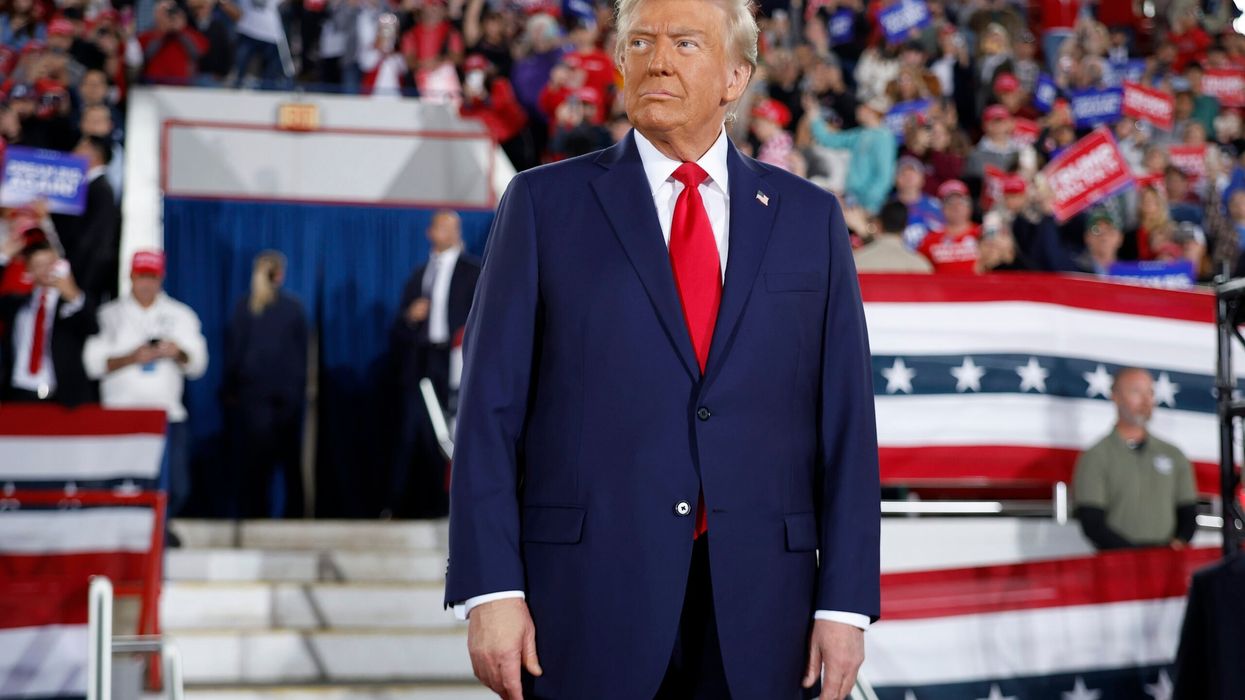DONALD Trump has secured the US presidency once again, according to media reports on Wednesday, in a comeback that many political analysts are calling historic. The former president, who defeated vice president Kamala Harris, will return to the White House for a non-consecutive second term, a rarity in US history, and a victory expected to have global ramifications.
Trump’s return to power follows one of the most contentious and closely watched campaigns in recent memory. Despite facing an unprecedented criminal conviction, an attempted assassination, and strong criticism from former officials, including his ex-chief of staff who referred to him as a “fascist,” Trump’s campaign proved resilient. "It's a political victory that our country has never seen before," Trump declared to his supporters at a victory celebration in Florida.
Kamala Harris entered the presidential race in July, replacing president Joe Biden, who withdrew in the face of significant challenges to his candidacy. Harris positioned herself as a centrist, highlighting the divisive nature of Trump’s rhetoric, including accusations that he often deployed racist and sexist language. Her campaign also addressed issues like abortion rights, unity, and the potential risks Trump’s return could pose to American democracy. These themes appeared to resonate strongly, driving a significant surge in fundraising and enthusiasm among her supporters.
However, Trump's focus on issues such as immigration, economic recovery, and an isolationist “America First” platform found substantial support among voters, especially those impacted by post-Covid economic challenges. His campaign appealed to those seeking a change from the Biden administration, which struggled with inflation and economic pressures affecting the working class. Trump's message of confronting immigration, bolstering US industries, and taking a tougher stance on international trade helped him capture critical swing states like Georgia, North Carolina, and Pennsylvania, delivering a decisive win.
This victory makes Trump the first president in over a century to win a non-consecutive second term. In another unprecedented aspect, he is the first individual to win the presidency while under a criminal conviction. Trump faces sentencing in a New York court later this month on a fraud charge. Already 78, he is set to break another record as the oldest sitting president during his term, surpassing Biden, who will leave office in January at 82.
Impact on foreign policy
Financial markets reacted swiftly to Trump’s victory, with the US dollar strengthening and bitcoin reaching an all-time high. Major equity markets also rose, as investors anticipated potential shifts in economic and foreign policy under Trump’s administration. However, experts warn of potential upheaval, as Trump’s proposed policies could bring about significant changes domestically and internationally.
One of Trump’s main international promises is a redefined approach to the conflict in Ukraine. He has suggested that a peace deal could be brokered by pressuring Ukraine to make territorial concessions to Russia, a stance that contrasts sharply with the Biden administration’s support for Kyiv. This position has led to concern among US allies, especially in Europe, where Trump’s policies could reshape alliances and strategies within NATO.
On immigration, Trump’s proposed policy includes mass deportations, which has generated apprehension in Latin American nations. His hard-line stance on immigration was a central element of his campaign and is likely to result in policy shifts with far-reaching impacts on US relations with neighbouring countries and immigration policies within the US.
Trump’s environmental policies are also anticipated to see major reversals. A climate change sceptic, Trump has expressed his intention to dismantle many of Biden’s environmental regulations, particularly those aimed at reducing carbon emissions. Such actions are expected to affect international climate agreements and could impact global efforts to address climate change.
Even before his victory was fully confirmed, foreign leaders began sending their congratulations. Israeli prime minister Benjamin Netanyahu, Indian prime minister Narendra Modi, and Turkish president Recep Tayyip Erdogan were among the first to offer support. Ukrainian president Volodymyr Zelensky also reached out, noting his hope for a “just peace,” though he likely anticipates a decrease in military aid from the US as Trump assumes office.
NATO secretary-general Mark Rutte responded cautiously, noting Trump’s longstanding criticisms of the US-led alliance, but stating optimism that Trump would work to make NATO “strong.” British prime minister Keir Starmer and French president Emmanuel Macron also conveyed their congratulations, with Macron emphasising his commitment to working alongside Trump “with respect and ambition.”
The campaign’s tone and strategy
Trump’s campaign remained consistent with his previous style, featuring frequent rallies and blunt messaging aimed at his loyal supporters. His rallies were marked by extreme language and promises to take strong actions against political opponents, a tone that drew both criticism and attention. Despite his harsh rhetoric, Trump’s appearances at events like a McDonald’s drive-thru and a spontaneous news conference from a garbage truck became viral moments, showcasing his ability to connect with an “everyman” appeal and a flair for the dramatic.
While Trump promoted policies such as tax cuts, deregulation, and increased tariffs on imports to stimulate US manufacturing, his mainstream proposals were often overshadowed by his tendency to use foul language and violent imagery. This style, though polarising, energised his base, who view him as a defiant outsider challenging Washington’s political norms.
Kamala Harris, who officially joined the race in July after Biden’s withdrawal, mounted a strong challenge by focusing on themes of unity and inclusivity. She made abortion rights and the preservation of democratic norms central to her platform, with her campaign attracting substantial fundraising support and rallying a large base of supporters who saw her as a progressive yet moderate alternative. Harris’s momentum allowed her to close the polling gap that Trump initially held over Biden, although it ultimately was not enough to overcome Trump’s entrenched voter base.
Had Harris won, she would have been the first Black woman president in US history. However, despite her strong finish, Trump’s victory underscores his continued influence and the deep divides within the American electorate.
(With inputs from agencies)




